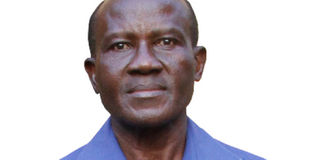Prime
Why many Ugandans – as well as Africans – love Bobi Wine

Several months back, a familiar kind of land dispute was resolved in unusual style.
Maj Gen Kasirye Ggwanga is a spicy mixture of humorous roguishness and hard work, whether on the battlefield or on his farms.
A popular tough guy, even if you would not exactly want too many clones with his guts in your neighbourhood.
According to media reports, someone foolhardy had designed to steal (or occupy without proper invitation) a piece of land belonging to Gen Ggwanga or one of his children.
Telephone machines must have got busy, and the general raced to the property, where a tractor was already moving earth.
Details of the conversation that ensued were scanty. If it was like in cowboy movies, some people should have instantly scattered. Anyhow, the general’s final action was decisive and uncompromising. He lit, set the tractor ablaze and drove off.
Now, many Ugandans have fallen victim to the incompetence, corruption and land grabbing that have reigned under President Museveni’s rule.
Those who go to the courts often find judges who are as corrupt as the land office bureaucrats. When Gen Ggwanga delivered his essay in rough justice, everybody who was anyone said something.
Radio talk shows were not complete without touching the subject, and the general got a wave of support for using a ‘language’ land thieves would understand.
Enter Hon Robert Kyagulanyi, or Bobi Wine. His interviewer on radio probably expected the young ‘ghetto president’ – and now legislator – to support the general.
He did not. Not quite. His response was surprisingly sober, even ‘dull’. He acknowledged that in the hopelessness of the prevailing environment, he could understand the anger of the general.
But then he reasoned that burning the tractor was an expression of lawlessness that could not be defended in a society that wanted to establish justice for even the weak citizens who were not armed.
Several months down the road, not only are virtually all the land victims too powerless to replicate Ggwanga’s rough justice, but chaos and injustice in the land sector are perhaps getting even more widespread.
Ggwanga’s action and the emotions that greeted it have therefore apparently not advanced justice.
Beside the Bobi Wine who, with his comrades, fist-fought for their turf in Parliament, stands another Bobi Wine who calmly contemplates the challenges in our midst and advocates a lawful society.
President Museveni’s men are making a mistake. They think that by persecuting Bobi Wine and preventing the singer from performing on stage, they limit his exposure and stop him from commenting on those challenges; that he might even do them a favour by starting a brawl, giving them reason to jail him.
They have ignored the possibility that the calmer Bobi Wine may instead step to the fore.
And as this other Bobi gets more sober, more rational and more articulate, his tormentors get more power-drunk and more incoherent.
Finally, Bobi Wine’s newspaper pictures show him often looking like a frail long-suffering victim; a powerless icon that ‘speaks’ loudly even when it is silent; an icon millions of Ugandans – and Africans – young and old, educated or illiterate – can identify with.
Having risen from the layers of neglect and deprivation to which the scourge of Africa’s corrupt dictatorships have condemned millions of Africans, that icon stares in your eyes or in an emptiness, inviting the spectator to contemplate the delusion of a ruler who now says that even after 35years, he will want to stay in power to solve the challenges of the African continent.
Mr Tacca is a novelist, socio-political commentator.
[email protected]




